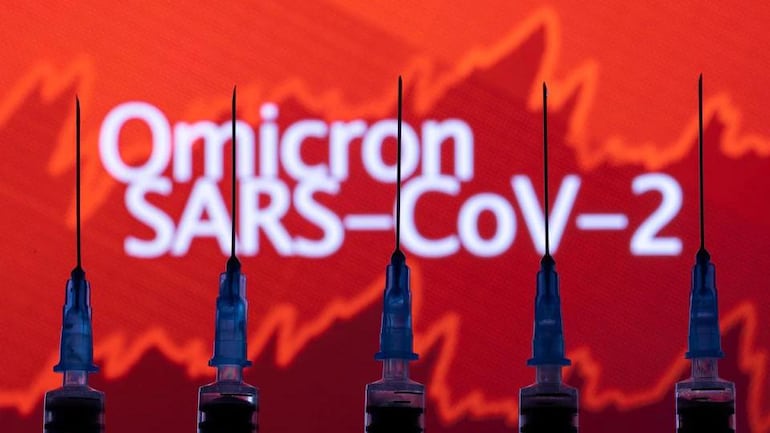Virendra Pandit
New Delhi: With only two days remaining before the deadly 2021 closes, an Oxford research team said on Wednesday that India may see a spurt within a week in the Covid-19 growth rate and the country may march into an intense but short-lived coronavirus wave because of the highly infectious Omicron strain, currently spreading across the world’s second-most populous nation.
“It is likely that India will see a period of explosive growth in daily cases and that the intense growth phase will be relatively short,” Paul Kattuman, Professor at the Judge Business School at the University of Cambridge which has developed a Covid-19 India tracker, the media reported on Wednesday.
“New infections will begin to rise in a few days, possibly within this week,” he said, adding that it was difficult to predict how high the daily cases could go.
Prof. Kattuman’s team of researchers, which developed the India Covid-19 tracker, highlighted six states on December 24 as of a “significant concern”, with an adjusted growth rate of fresh cases exceeding 5 percent. By December 26, the variant had expanded to 11 Indian states.
On Wednesday morning, India reported new 9,195 fresh Covid-19 cases, the highest new daily cases in three weeks. It pushed the total confirmed tally to 34.8 million infections.
So far, Covid-19 has claimed 480,592 lives in India. An alarmed nation is currently gearing up to prevent another massive outbreak like the second wave of Covid-19 in April-May, 2021, even though only 781 cases of the Omicron strain have been identified so far.
As part of the ongoing vaccination drive, Prime Minister Narendra Modi last week announced booster shots for senior citizens and patients with comorbidities as also for teenagers aged 15 to 18 years. New Delhi also approved two more vaccines and an antiviral pill developed by Merck & Co. with partner Ridgeback Biotherapeutics LP.
Because of a sudden spurt in infection cases on Monday this week, New Delhi closed cinema halls, schools, and gymnasia and introduced restrictions on public gatherings, a day after it reported the newest cases in over four months. It imposed a night curfew and ordered bars, restaurants, and offices to run with only 50 percent occupancy.
India’s financial capital, Mumbai, also reported a surge in recent cases to 1,377 on Tuesday.
These policy decisions underscore the hard lessons India learned after a deadly Delta-led virus wave in April and May that pushed infections to a record-beating 400,000-plus each day. It overwhelmed the country’s hospitals and crematoriums and left its citizens pleading for oxygen and other medical resources on social media platforms.
The Cambridge India tracker had correctly called the peak of this devastating second wave in May and also forecast in August that India would see a slow burn in its Covid infections curve until the vaccination coverage was sufficiently high.
So far, India has administered 142 crore doses to its people, of whom 58 crores (42 percent population) have become fully vaccinated with two doses each.

